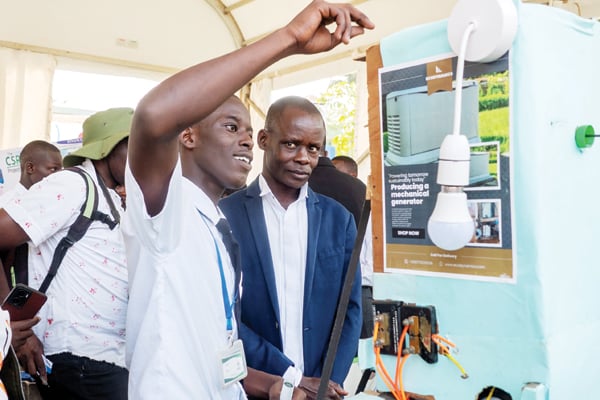
Chido Mpemba
The youth of Africa stand at the threshold of a transformative era, one that demands our collective effort to harness their potential as leaders and innovators. As the African Union (AU) chairperson’s youth envoy, I have witnessed the dynamism and resilience of our young people, ranging from demonstrations to demands for better governance, tackling climate change and a global digital era.
The recent decision on the institutionalisation of the Office of the Youth Envoy within the African Union symbolises a significant commitment to integrating youth perspectives into the highest levels of policymaking, establishing a continuous and permanent structure.
One of the impactful endeavours in the office of the youth envoy has been the Make Africa Digital (M.A.D) Campaign. This policy advocacy initiative has equipped more than 4,000 youth with essential digital skills and literacy for the future of work, in partnership with governments, Afreximbank and Google. A multi-stakeholder approach is important to advocate for a generation of digitally literate citizens who can drive innovation, foster economic growth, and address pressing challenges in an increasingly digital world.
Democratic governance is an area where youth involvement is essential. The AU increased youth participation in election observations by 45 percent in a year that many African countries are going to the polls. This is a step towards enhancing transparency and accountability in our electoral processes. Young observers bring fresh perspectives and a commitment to integrity, vital for strengthening our democracies. Their involvement also prepares them for future leadership roles, instilling a deep-seated respect for democratic values.
Nigeria’s recent decision to approve a 30 percent quota for youth and women in federal appointments, following interventions by our African Union Youth Reference Committee, demonstrates the significant impact of youth advocacy efforts. This will empower young leaders whose unique insights and energy will enrich governance. It is an example for other countries to follow.
We have seen an increase in youth taking on positions as cabinet ministers and lawmakers. However, for equity and inclusion, there needs to be more representation of youth with disabilities and women from marginalised communities.
In addition to digital innovation and democratic participation, Africa must assert its leadership on the global stage in tackling climate change. Despite contributing the least to global emissions, our continent faces the severe impacts of climate change. This disparity underscores the importance of our voice in international climate discussions and actions. In my role, I have committed to offsetting my carbon footprints by planting 500 trees, demonstrating that leadership in climate action starts with individual responsibility.
As we look to the future, the importance of African youth participating in the upcoming UN Summit of the Future cannot be overstated. With Africa’s youth population projected to reach more than 830 million by 2050, their involvement is crucial for shaping a sustainable and inclusive future.
The continent’s median age is just 19.7 years, making it the youngest in the world. This demographic advantage positions Africa’s youth as pivotal players in addressing global challenges. Their perspectives, innovations, and leadership are essential for ensuring that solutions are relevant and effective.
The institutionalisation of the Office of the Youth Envoy is a critical step in a broader strategy to empower young Africans. It ensures continuous youth representation within the highest structures, allowing for sustained advocacy and policy influence. However, our focus must remain on actionable initiatives that deliver tangible benefits to the youth.
As I prepare to pass on the baton, I look forward to the future with optimism, eager to continue making an impact in new ways. The recognition of youth, especially young women, as key stakeholders in Africa’s development is not merely symbolic; it is a pragmatic acknowledgment of their potential to drive progress.
We must continue to advocate for policies that promote inclusion, innovation, development, and leadership.
Chido Mpemba is the African Union Chairperson’s Youth Envoy.




